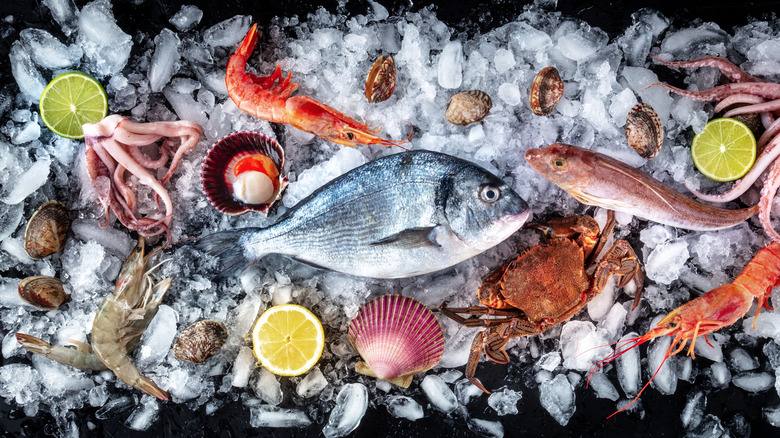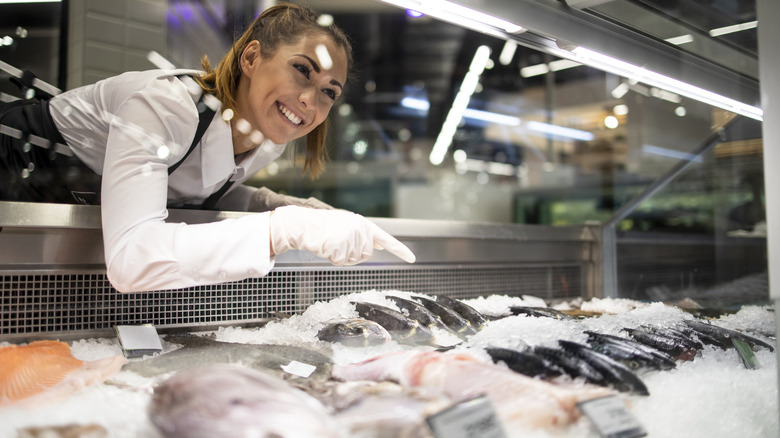The Timing Mistake You Need To Avoid When Freezing Seafood
Fresh seafood is delightful, but, unfortunately, it's not always practical. Those without a reliable source of quality seafood or who can't make regular trips to the fish market often need to take steps to preserve their catches, the most common of which is freezing. Still, there's more to the process than simply tossing the fish into the freezer and walking away. It's vital to avoid a frequent timing mistake many make when freezing seafood.
Michael Chavez, the Kitchen Development Manager at the Angry Crab Shack, told Mashed that a common mistake everyone makes when it comes to freezing seafood is doing it too slowly. This goes not just for the freezing process itself but how soon it begins once you get home. "It is critical to not leave food out of refrigeration for excessive time and get the product chilled and frozen as quickly as possible," Chavez says.
However, don't just stick the seafood anywhere there's a free spot. Chavez recommends freezing it in a single layer on the lowest freezer shelf, where temperatures are coldest. Chillier temperatures help the fish reach the ideal temperature for storage in a shorter time, preventing it from degrading.
The reason for quick freezing
Freezing your fresh catch as quickly as possible mimics the way the pros do it. "Fishermen on boats or fisheries will often flash freeze [seafood] using equipment that has the capacity to chill large amounts of seafood very quickly," says Michael Chavez. By doing so, he says the fish's texture and flavor are better preserved, along with its nutritional value. This is among the biggest reasons frozen fish is almost always better than fresh. With all that in mind, it may be surprising to learn it's possible to make a timing mistake by freezing seafood too soon. This is the case with cooked seafood, which Chavez says should be cooled to room temperature first and then patted dry before freezing.
Still, even the best-timed freezing can't overcome the fundamentals of certain types of food, which is why it's worth considering the best and worst seafoods to put in the freezer before shopping. For example, shrimp are among the seafood options that last longest in the freezer (up to 18 months), while crab meat and fatty fish, such as salmon, catfish, or tuna, last just two to three months.
So, the next time you're heading home with a delicious piece of seafood, keep the clock in mind. The faster you freeze, the better quality you'll find when it comes time to cook.

